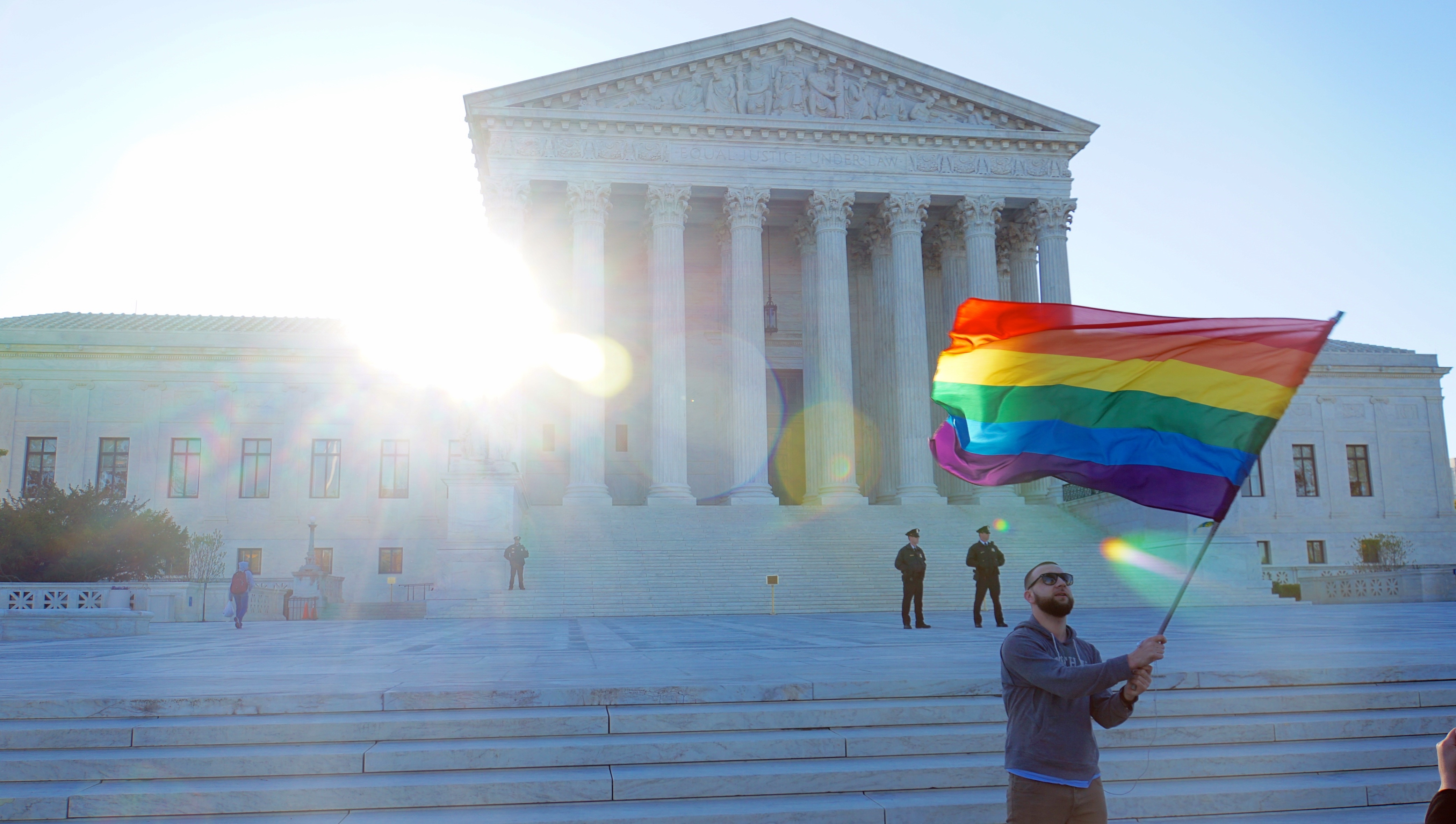What the Masterpiece Cakeshop case means for LGBTQ+ rights

In 2012, Masterpiece Cakeshop owner Jack Phillips refused to make Charlie Craig and Daniel Mullins a wedding cake based on the Cakeshop’s policy against doing so. Homosexuality, the owner claimed, violated his religious beliefs. This dispute became a case that travelled all the way to the Supreme Court and has become one of the most closely followed LGBTQPIA+ rights cases of the year. On June 4, right at the beginning of Pride Month, SCOTUS released their decision in Masterpiece Cakeshop v. Colorado Civil Rights Commission: the court sided with the baker.
In order to understand this ruling, it’s important to recognize how Justice Anthony Kennedy, who wrote the opinion for Masterpiece Cakeshop, has actually incrementally helped pioneer queer rights in this country through his past opinions on cases related to queer issues. Kennedy generally takes a “narrow case-by-case approach” in his opinions so as to avoid overstepping his powers — an approach that suggests Kennedy doesn’t act on bias or agenda so much as pure analysis of the facts, which often earns him the respect of liberals and conservatives alike. Take, for example, his approach in the Windsor case. Kennedy ruled that the Defense of Marriage Act (DOMA) deprived same sex couples of their Fifth Amendment right to equal protection under federal law, and struck down the Act. This provided the precedence required to later decide Obergefell, the case that made the prohibition of same sex marriage illegal.
This is the same approach Kennedy appears to have taken regarding Masterpiece Cakeshop v. Colorado Civil Rights Commission. In his opinion about the case, Kennedy made it clear that discriminating against Americans based on their sexuality is unacceptable. “Our society has come to the recognition that gay persons and gay couples cannot be treated as social outcasts or as inferior in dignity and worth,” Kennedy states. “For that reason the laws and the Constitution can, and in some instances must, protect them in the exercise of their civil rights. The exercise of their freedom on terms equal to others must be given great weight and respect by the courts.”
But Masterpiece Cakeshop owner Jack Phillips, Kennedy also stated, had the right to exercise his religious freedom under the First Amendment. “At the same time the religious and philosophical objections to gay marriage are protected views and in some instances protected forms of expression," Kennedy wrote, the "neutral consideration to which Phillips was entitled was compromised here." Phillips felt that he could not, in good conscience, stand to see his right to religious freedom absolved by a compelling government interest in anti-discrimination.
Legally, Phillips defended his denial of making the same-sex couple’s cake based on his argument that he was not refusing to serve the same-sex couple altogether; he did not violate Colorado State’s numerous anti-discrimination laws that prevent discriminatory practices in businesses and other establishments, because he would have sold them anything else in his shop, he argued. He specifically refused to sell them a wedding cake because he opposed the event at which it would be served. He was legally allowed to do so, he argued, because this event also occurred prior to Colorado state’s recognition of same-sex marriage; if the state was essentially engaging in the same “discrimination” against same-sex marriage, then Phillips’ should not be held legally culpable for acting in accordance to state laws at the time.
So essentially while the phrasing of the decision emphasizes the importance of dignity and equal treatment under the law for people of all identities, and that discriminatory practices are both morally and, under the Fourteenth Amendment, legally wrong, the Court still ultimately viewed Phillips’ actions as a reflection of his religious belief, which he had a right to express. As Kennedy wrote, “the religious and philosophical objections to gay marriage are protected views and in some instances protected forms of expression.”
As a member of the queer community myself, I was incredibly eager to see further anti-discrimination efforts on behalf of same-sex couples enacted into law. But after further looking into the details of this case, I understand why the Court chose not to use this case as an opportunity to expand anti-discrimination laws. The statements of the Court, as Ginsburg acknowledged in her dissent, could have easily led the Court in the “opposite direction,” meaning the ruling could have taken a more judicial activist approach and stepped slightly beyond the purview of the original question.
In this particular case, the Court’s support of Phillips’ First Amendment rights does not necessarily encourage or allow for future instances of discrimination: It only applies to this particular case in which the timeline resulted in Phillips’ belief that he was not acting unlawfully. The decision in Masterpiece Cakeshop, though disappointing, is not a license to discriminate.
More articles by Category: LGBTQIA
More articles by Tag: Civil rights, Equality, Supreme Court


























